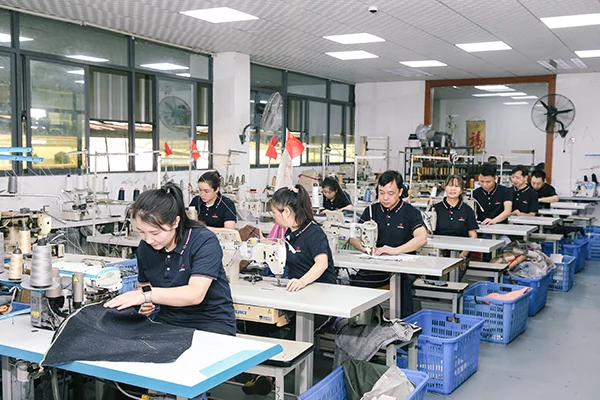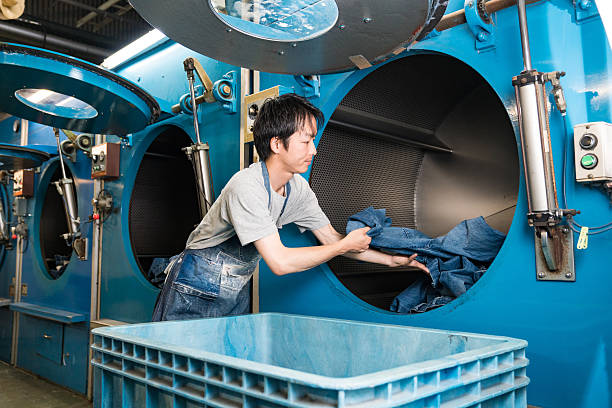Navigating the maze of regulatory requirements for denim jeans in the UK can be daunting, especially after Brexit reshaped trade rules and compliance landscapes.
For retailers, importers, and sourcing managers, understanding these compliance demands is essential to prevent delays, fines, or product recalls. From textile labeling to safety standards and import duties, each facet plays a critical role in successful market entry.
This guide provides a comprehensive but focused overview of UK compliance requirements for denim jeans, equipping you to confidently manage import, labeling, and safety regulations.
Key Insights on UK Denim Jeans Compliance
- UK compliance for denim jeans integrates product safety, textile labeling, chemical safety, UKCA marking, and post-Brexit import duties.
- Accurate adherence to regulations and labeling ensures market access, consumer trust, and avoids costly penalties.
Summary Table: Key UK Compliance Elements for Denim Jeans
| Compliance Aspect | Regulation Reference | Key Requirements | Compliance Tips |
|---|---|---|---|
| Product Safety | General Product Safety Regulations 2005 | Goods must be safe under normal use; truthful descriptions; meet flammability standards. | Implement pre-shipment safety testing and maintain detailed technical files. |
| Labeling | Textile Products Regulations 2012 | Permanent labels with full fiber content, care instructions, and importer identity. | Verify all label text is in English and matches product specifications exactly. |
| Import Duties | UK Global Tariff | Accurate HS code classification (e.g., 6203.42); customs declarations; proof of origin. | Partner with a customs agent to ensure correct tariff classification and documentation. |
| Chemical Safety | UK REACH | Restricted substances (azo dyes, heavy metals) must be within legal limits. | Obtain supplier test reports and conduct periodic third-party lab testing. |
| Environmental | Environmental Permitting Regulations | Proper chemical waste disposal; control of hazardous substances in manufacturing. | Audit your supply chain for environmental certifications and waste management policies. |
| Marking | UKCA Marking Guidance | UKCA mark required if product falls under specific safety regulations. | Consult UK government guidance to determine if your product requires UKCA marking. |
UK Regulatory Framework for Denim Jeans

Product Safety and Consumer Protection in the UK
In the UK, all consumer goods, including denim jeans, must comply with the General Product Safety Regulations 2005. These regulations ensure that products are safe for their intended use and free from risks to health and safety. This extends to ensuring all product descriptions are accurate and not misleading. Specific flammability standards for textiles are also enforced to prevent fire hazards.
For denim jeans, it is crucial to verify that products meet these safety standards before they reach the market. This involves conducting thorough testing, particularly for components such as buttons, zippers, and fabric treatments. Proactive testing helps to avoid the risk of product recalls, penalties, and brand damage.
Chemical Safety: REACH Regulations and Textile Compliance
UK denim importers must comply with REACH (Registration, Evaluation, Authorisation, and Restriction of Chemicals) regulations. This law restricts the use of harmful chemicals in textiles, including azo dyes, heavy metals, and other substances that could pose health risks. Denim jeans must not contain chemicals that exceed the legal limits set by REACH.
Since the UK has its own version of REACH post-Brexit, businesses must ensure they are fully compliant with UK-specific regulations. This includes ensuring that suppliers provide certification and test results proving the product’s compliance with these restrictions. By doing so, companies can avoid disruptions in the supply chain and costly recalls.
Import and Customs Requirements for Denim Jeans Post-Brexit

Since the UK left the EU, importing denim jeans from Europe or other regions requires a full customs declaration. Businesses must now navigate new import procedures and tariffs, which can impact delivery times and costs.
UK Import Duties and Customs Procedures for Jeans
Denim jeans typically fall under the HS code 6203.42, which is used for men’s and boys’ denim trousers. These goods are subject to import duties, which vary based on the product’s composition and country of origin. For example, products imported from countries with which the UK has free trade agreements may be eligible for reduced or zero import duties.
To ensure smooth customs clearance, businesses must submit detailed documentation, including:
- Commercial invoice
- Packing list
- Proof of product origin
- Evidence of compliance with UK safety standards
In addition to import duties, VAT (currently 20%) will be applied to the total value of goods, including shipping and duties.
Trading Standards: Fair Pricing and Accurate Product Descriptions
The UK has strict trading standards regulations to protect consumers from misleading product descriptions. For denim jeans, this includes accurate labeling of fabric composition, size, and country of origin. These labels must also match the product specifications.
Failure to provide clear, truthful product descriptions could result in penalties under the Consumer Protection from Unfair Trading Regulations 2008. To stay compliant, it is recommended to maintain detailed product specifications and ensure that all marketing materials align with the information on labels.
UK Labeling Requirements for Denim Jeans

Labeling plays a crucial role in UK denim jeans compliance. Accurate and clear labeling not only ensures legal compliance but also builds consumer trust.
Textile Fiber Content and Care Labels
Under the Textile Products (Labelling and Fibre Composition) Regulations 2012, all denim jeans must have a permanent label clearly stating the fiber composition by percentage. For example, “98% Cotton, 2% Elastane.” The label must also include care instructions to guide consumers on how to care for their denim jeans, preventing damage and returns.
It’s essential that all labels are written in English and provide accurate, standardized care symbols. Non-compliance with these rules can result in product recalls, fines, and damaged brand reputation.
Use of UKCA Marking on Denim Products
The UKCA (UK Conformity Assessed) mark is required for certain products, including denim jeans, that meet UK-specific safety regulations. This mark replaces the EU’s CE mark after Brexit. It indicates that the product meets UK safety standards. However, not all denim products require the UKCA mark. It’s necessary for items with specific components, such as children’s sleepwear or garments with treated fabrics that must meet flammability standards.
To apply the UKCA mark, businesses must ensure their products comply with the relevant regulations, create a technical file, and sign a declaration of conformity.
Flexible Denim Manufacturing for Ambitious Apparel Brands
Partner with Changhong Garment to source high-quality, trend-driven jeans with fast sampling and scalable production. Enjoy flexible minimum orders, private-label options, and fabrics compliant with global standards to boost your retail margin and expand your denim lineup.

Environmental and Flammability Standards in Denim Manufacturing

As consumer awareness of environmental and safety concerns increases, denim jeans manufacturers must adhere to stringent environmental and flammability regulations.
Environmental Regulations and Waste Management
Environmental regulations are critical for denim manufacturers to minimize their environmental footprint. The UK, like the EU, enforces strict rules under REACH to restrict harmful chemicals in the production and dyeing processes. Manufacturers must implement proper chemical waste disposal practices and ensure that their products do not contain substances that harm the environment or consumer health.
Businesses that invest in sustainable practices and transparent supply chains will not only comply with regulations but also enhance their brand reputation.
Flammability Standards Specific to Denim Textiles
Denim jeans must meet the General Product Safety Regulations and specific flammability standards to ensure they do not pose a fire risk. While denim fabric itself is generally safe, treatments or finishes applied to the jeans, such as water repellents or decorative trims, can affect their flammability.
Testing against standards like BS EN ISO 15025:2016 ensures that denim products are safe from a fire hazard. Non-compliance with flammability standards can result in product recalls and severe reputational damage.
Conclusion
Complying with UK regulations for denim jeans is crucial for businesses aiming to enter or expand within the UK market. Adhering to safety standards, chemical restrictions, labeling requirements, and import procedures ensures smooth market access and builds consumer trust.
Stay ahead by partnering with trusted manufacturers and compliance experts, like Changhong Jeans, to secure your position in the UK denim market. Contact us for OEM/ODM support.
Frequently Asked Questions
What are UK labeling rules for jeans?
UK labeling rules require denim jeans to have a permanent label stating the full fiber composition (e.g., “98% Cotton, 2% Elastane”) and clear care instructions. The label must be in English and accurate to avoid product recalls and penalties.
Do jeans require UKCA marking?
Yes, some denim products require the UKCA mark, especially if they include components regulated for safety, such as children’s sleepwear or treated fabrics. The UKCA mark indicates compliance with UK safety standards.
What’s the post-Brexit customs duty on jeans?
The customs duty on denim jeans imported into the UK depends on their HS code and country of origin. Jeans classified under HS code 6203.42 may attract a 12% duty rate, but imports from countries with free trade agreements may qualify for reduced duties. Be sure to classify goods correctly to avoid delays and penalties.






